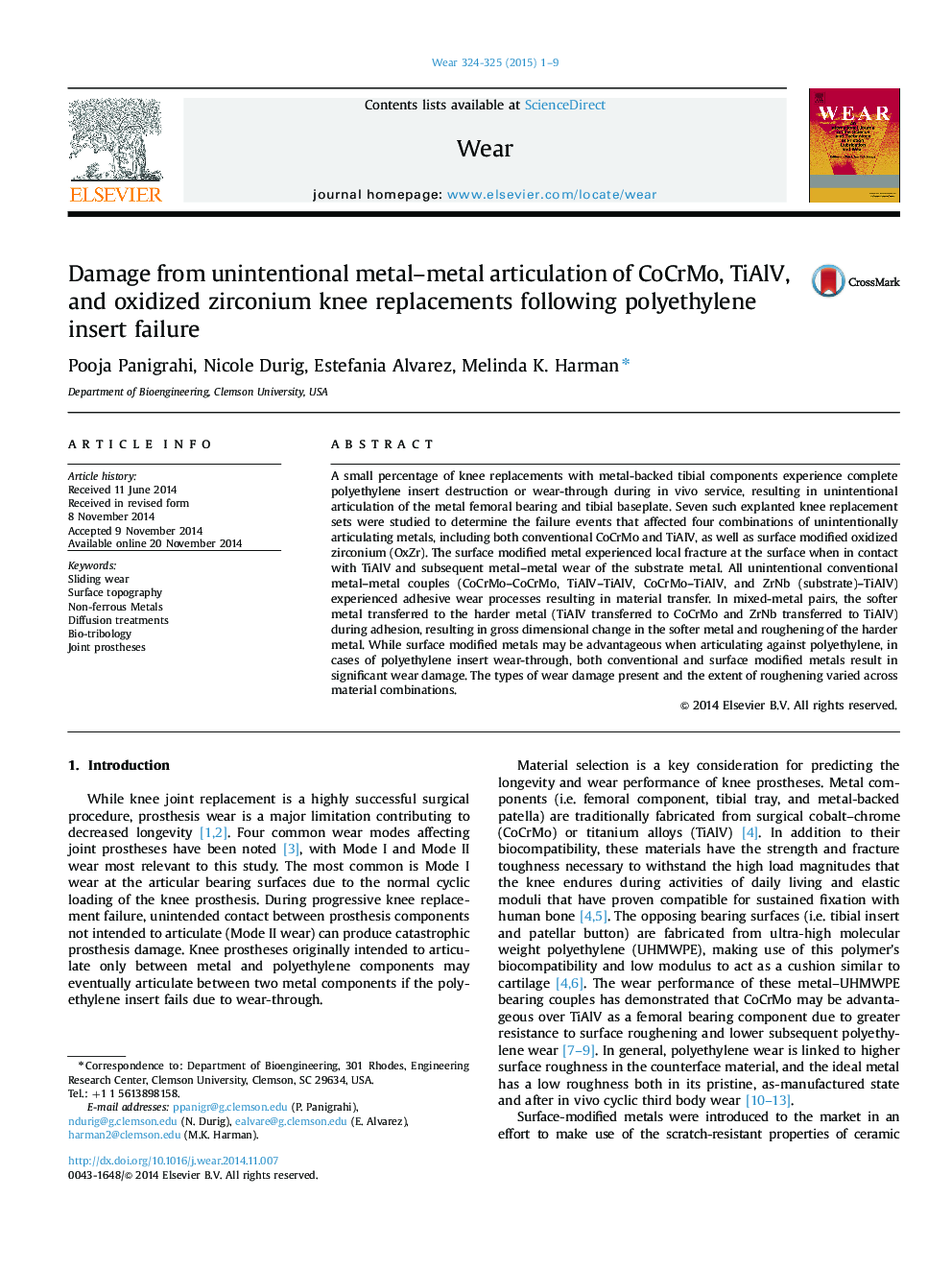| Article ID | Journal | Published Year | Pages | File Type |
|---|---|---|---|---|
| 7004455 | Wear | 2015 | 9 Pages |
Abstract
A small percentage of knee replacements with metal-backed tibial components experience complete polyethylene insert destruction or wear-through during in vivo service, resulting in unintentional articulation of the metal femoral bearing and tibial baseplate. Seven such explanted knee replacement sets were studied to determine the failure events that affected four combinations of unintentionally articulating metals, including both conventional CoCrMo and TiAlV, as well as surface modified oxidized zirconium (OxZr). The surface modified metal experienced local fracture at the surface when in contact with TiAlV and subsequent metal-metal wear of the substrate metal. All unintentional conventional metal-metal couples (CoCrMo-CoCrMo, TiAlV-TiAlV, CoCrMo-TiAlV, and ZrNb (substrate)-TiAlV) experienced adhesive wear processes resulting in material transfer. In mixed-metal pairs, the softer metal transferred to the harder metal (TiAlV transferred to CoCrMo and ZrNb transferred to TiAlV) during adhesion, resulting in gross dimensional change in the softer metal and roughening of the harder metal. While surface modified metals may be advantageous when articulating against polyethylene, in cases of polyethylene insert wear-through, both conventional and surface modified metals result in significant wear damage. The types of wear damage present and the extent of roughening varied across material combinations.
Keywords
Related Topics
Physical Sciences and Engineering
Chemical Engineering
Colloid and Surface Chemistry
Authors
Pooja Panigrahi, Nicole Durig, Estefania Alvarez, Melinda K. Harman,
